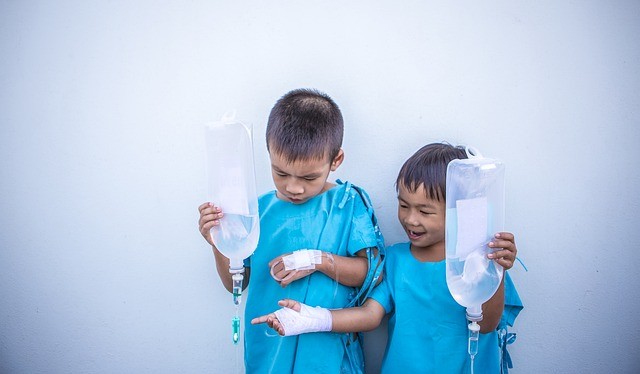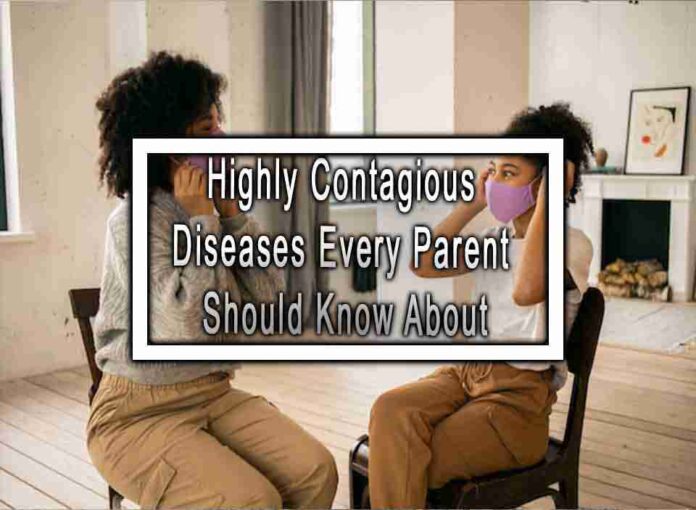As a parent, it’s important to be aware of highly contagious diseases that can affect children. Here are some notable examples:
1. Measles
Measles is a highly contagious viral illness that spreads through respiratory droplets. It causes symptoms such as fever, cough, runny nose, rash, and can lead to complications like pneumonia and encephalitis. Measles can be prevented through vaccination.
2. Chickenpox
Chickenpox, or varicella, is caused by the varicella-zoster virus. It is highly contagious and spreads through direct contact or respiratory droplets. Symptoms include a rash, fever, and itchy blisters. Vaccination can prevent chickenpox, and a two-dose vaccine is recommended for children.
3. Influenza (Flu)
Influenza is a contagious respiratory illness caused by influenza viruses. It spreads through respiratory droplets and can cause symptoms such as fever, cough, sore throat, body aches, and fatigue. Annual flu vaccination is recommended for children.

4. Pertussis (Whooping Cough)
Pertussis is a highly contagious bacterial infection that affects the respiratory system. It causes severe coughing spells, often with a “whooping” sound. Pertussis can be prevented through vaccination, and a series of doses is recommended for children.
5. Hand, Foot, and Mouth Disease (HFMD)
HFMD is a viral infection caused by several enteroviruses. It primarily affects infants and young children and spreads through close contact with infected individuals. Symptoms include fever, sore throat, and characteristic sores or blisters on the hands, feet, and mouth.
6. Norovirus
Norovirus is a highly contagious gastrointestinal virus that causes vomiting and diarrhea. It spreads through contaminated food, water, or surfaces, and close contact with infected individuals. Proper hygiene practices, such as frequent handwashing, can help prevent its transmission.
It’s important to note that vaccination plays a crucial role in preventing the spread of many highly contagious diseases. Following recommended immunization schedules and practicing good hygiene, such as handwashing and covering the mouth and nose when coughing or sneezing, can significantly reduce the risk of transmission. If you suspect your child may have a contagious disease, it’s important to consult with a healthcare professional for proper diagnosis and guidance.










